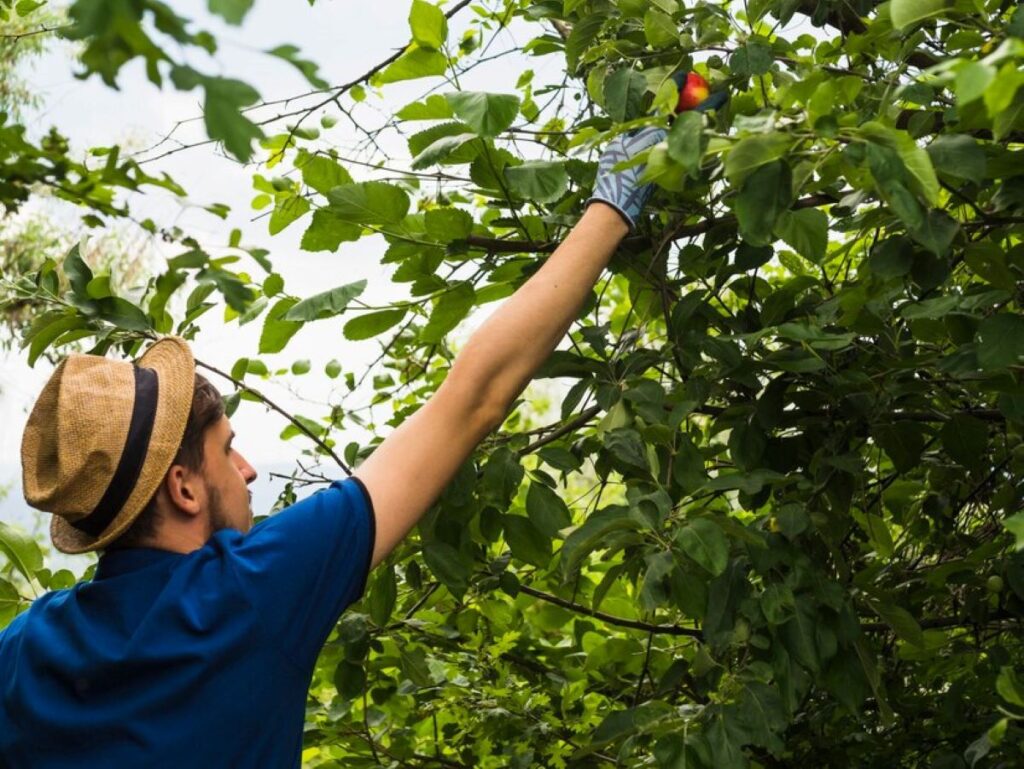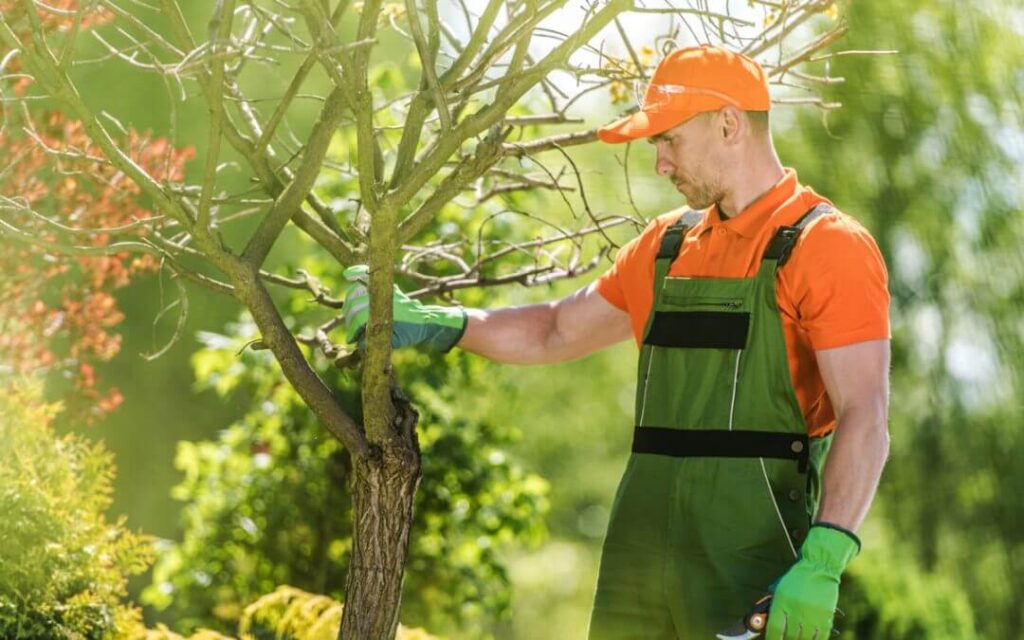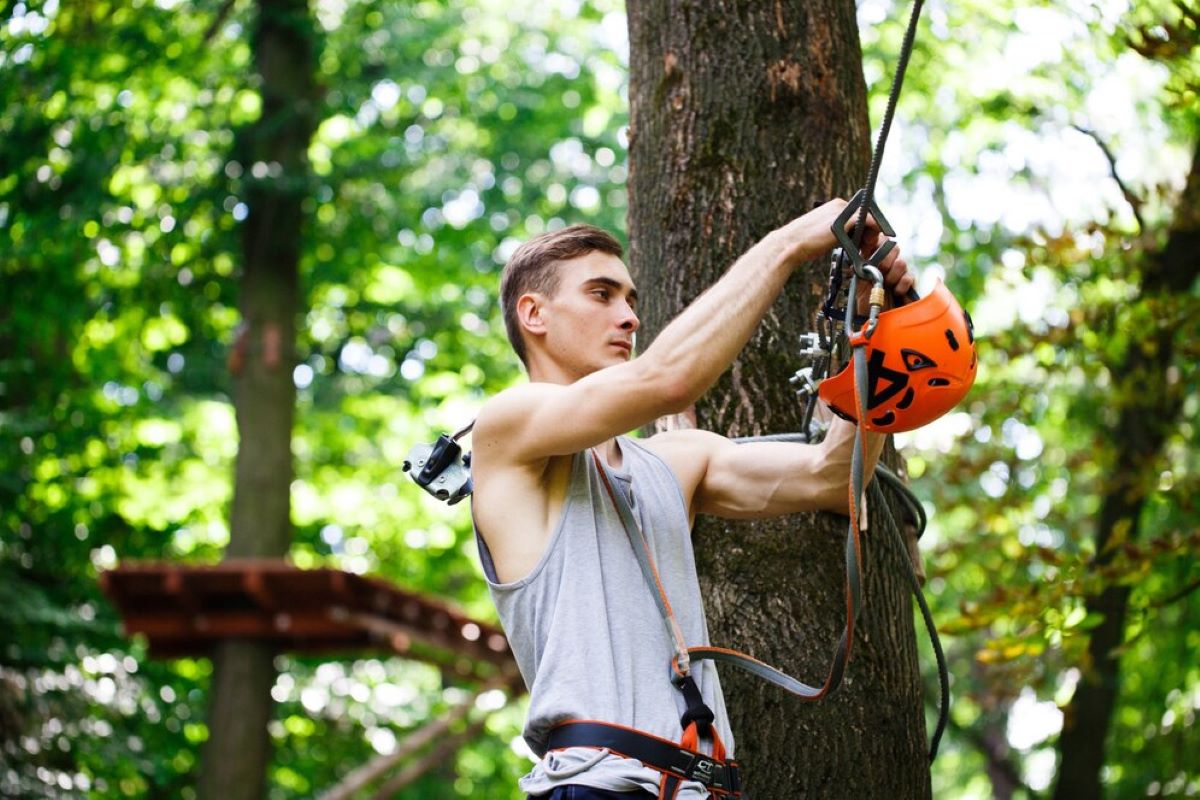Tree Pruning Pricing: How to Budget for Your Project
Tree pruning is an essential part of maintaining your property and keeping your landscape healthy. By setting aside a budget for tree pruning projects, you can protect both your trees and your property while avoiding any unexpected financial burdens.
The cost of tree pruning services can vary depending on several factors:
- The size and type of tree
- The health condition of the tree
- How accessible the location is
- What equipment is needed
- The level of expertise required
Hiring professional tree pruning services comes with important benefits that make the investment worthwhile:
- Safety: Removing dead or weak branches that could be dangerous
- Tree Health: Making strategic cuts to encourage healthy growth
- Property Protection: Preventing damage to buildings and utility lines
- Visual Appeal: Keeping your landscaping looking attractive
- Cost Savings: Regular maintenance can help you avoid expensive emergency repairs
By understanding these factors, you can create a more accurate budget for your tree pruning projects. Getting a thorough assessment from certified arborists will ensure that you receive precise cost estimates and high-quality service, making your investments in tree care practical and valuable as a property owner.
Understanding Tree Pruning and Its Purpose
Tree pruning and trimming, while often used interchangeably, serve distinct purposes in tree care. Pruning involves the selective removal of specific branches to enhance tree structure and health, while trimming focuses on aesthetic maintenance and basic size control.
Professional tree pruning delivers essential benefits for tree health and safe growth:
- Disease Prevention: Removal of dead, diseased, or infested branches prevents spread of pathogens
- Structural Integrity: Strategic cutting promotes strong branch architecture
- Light Penetration: Thinning dense canopies allows sunlight to reach inner branches
- Air Circulation: Proper spacing between branches reduces fungal growth risk
Common reasons for tree pruning include:
- Safety Concerns
- Removing hazardous branches near buildings
- Clearing branches from power lines
- Eliminating storm-damaged limbs
- Health Management
- Treating pest infestations
- Managing diseases
- Removing crossing or rubbing branches
- Growth Direction
- Training young trees
- Maintaining desired shape
- Controlling size for space limitations
Proper pruning techniques require precise cuts at specific angles and locations to promote healing and prevent decay. Each cut must serve a clear purpose, as excessive pruning can stress trees and create entry points for diseases.
Key Factors Influencing Tree Pruning Pricing
Tree pruning costs vary significantly based on several critical factors that professional arborists consider when providing service quotes.
1. Tree Size and Height
The height directly impacts labour requirements, equipment needs, and time investment.
- Small trees (under 30 feet): $200-$400
- Medium trees (30-60 feet): $400-$800
- Large trees (over 60 feet): $800-$1,500+
2. Species Characteristics
Different tree species have unique traits that affect pruning techniques and efforts.
- Dense canopy trees require more extensive pruning
- Hardwood species demand specialised cutting techniques
- Fast-growing varieties need more frequent maintenance
- Native Australian species often have specific pruning requirements
3. Tree Health Assessment
Assessing the health of the tree is crucial in determining the approach to pruning.
- Diseased trees require additional safety precautions
- Pest infestations necessitate specialised treatment protocols
- Structural weakness demands careful branch removal
- Dead wood removal increases labour time
4. Site Accessibility
The accessibility of the site plays a significant role in determining the equipment and techniques used.
- Restricted access locations require specialised equipment
- Proximity to buildings adds complexity to the job
- Power line presence demands expert handling
- Steep terrain or difficult ground conditions increase labour costs
- Limited workspace requires additional safety measures
5. Equipment Requirements
Specific equipment may be necessary depending on the characteristics of the tree and the site.
- Cherry pickers for tall trees
- Climbing gear for restricted access
- Specialised cutting tools for specific species
- Safety equipment for hazardous conditions
Each project’s unique combination of these factors determines the final tree pruning pricing structure, making professional assessment essential for accurate cost estimation.
Typical Cost Ranges for Tree Pruning Services in Sydney
The cost of tree pruning services in Sydney varies depending on the size and type of tree. Here is a breakdown of the current market rates:
Small Trees (Under 30 ft)
- Basic pruning: $200-$400
- Crepe Myrtle: $250-$350
- Fruit trees: $180-$300
Medium Trees (30-60 ft)
- Standard pruning: $400-$800
- Eucalyptus: $500-$700
- Jacaranda: $450-$650
Large Trees (Over 60 ft)
- Complex pruning: $800-$2,000
- Pine trees: $900-$1,800
- Oak trees: $1,000-$2,500
Different tree species require specific pruning techniques, which can affect the final cost:
- Crepe Myrtle needs precise shaping to maintain its ornamental value, with costs ranging from $250-$350
- Pine trees demand specialised equipment due to their height and structure, pushing costs to $900-$1,800
- Oak trees require careful consideration of branch structure and weight distribution, resulting in higher costs of $1,000-$2,500
These prices reflect standard pruning services in easily accessible locations. The exact cost will depend on the specific condition of the tree and its location within the Sydney metropolitan area.

Additional Costs to Consider When Budgeting for Tree Pruning in Sydney
Tree pruning projects often include essential supplementary services that affect the total budget. A comprehensive understanding of these additional costs helps create an accurate financial plan.
Debris Removal Services
- Basic clean-up and removal: $75-150
- Green waste disposal fees: $50-100 per load
- Wood chipping services: $100-200
- Hauling costs for larger volumes: $150-300
Stump-Related Services
- Stump grinding (per stump):
- Small stumps (under 30cm): $80-150
- Medium stumps (30-60cm): $150-250
- Large stumps (60cm+): $250-400
- Complete stump removal with root system: Add 30-50% to grinding costs
- Multiple stump discount: 10-15% for 3+ stumps
These costs vary based on:
- Site accessibility
- Debris volume
- Stump size and condition
- Root system complexity
- Equipment requirements
Note: Council permits might be required for certain stump removal operations, adding $100-200 to project costs. It’s advisable to check with local forestry operations for specific requirements. Additionally, if tree removal is involved, you may need to apply for a tree removal or encroachment permit, which could further impact your budget.
Timing and Frequency Impact on Your Tree Pruning Budget in Sydney
Seasonal timing plays a crucial role in tree pruning costs across Sydney. Late winter presents optimal pricing opportunities, as reduced foliage allows easier access and visibility for arborists. Peak seasons, particularly spring and summer, often command premium rates due to increased demand.
Different trees require varied pruning schedules:
Mature Trees
- Every 3-5 years for structural maintenance
- Higher costs due to size and complexity
Young Trees
- Annual pruning for proper growth direction
- Lower costs due to manageable size
Fruit-Bearing Trees
- Bi-annual pruning (winter and post-harvest)
- Mid-range pricing based on size and fruit accessibility
Evergreens
- Light pruning every 2-3 years
- Pricing varies based on species and growth pattern
The ideal pruning schedule balances tree health requirements with budget considerations. Establishing a regular maintenance pattern helps distribute costs throughout the year, preventing unexpected expenses from emergency pruning needs.
Native Australian species adapt well to winter pruning, making June-August an economical choice for Sydney tree maintenance. This timing allows trees to heal before spring growth while securing better rates from arborists during their less busy period.
Why Hiring Certified Arborists is Essential for Your Tree Pruning Project in Sydney?
Professional tree care requires specialised knowledge and expertise that certified arborists possess through rigorous training and certification. Licensed arborists bring critical benefits to tree pruning projects:
Safety Assurance
- $20M public liability insurance coverage
- Compliance with Australian safety standards
- Proper equipment and safety protocols
- Risk assessment expertise
Technical Expertise
- Level 2-5 certified practitioners
- Knowledge of local tree species
- Understanding of disease identification
- Precision cutting techniques
Certified arborists handle complex scenarios that untrained individuals should not attempt:
- Trees near power lines
- Storm-damaged branches
- Disease-affected specimens
- Heritage-listed trees
Arbor Pride’s certified team maintains memberships with key industry bodies:
- International Society of Arboriculture (ISA)
- Arboriculture Australia
- Tree Contractors Association
These credentials ensure pruning work meets professional standards while protecting property value and tree health. The expertise of certified arborists becomes particularly valuable when dealing with hazardous situations or protected species that require special permits.
See Also : Benefits of Professional Hedge Trimming for Healthy Growth
Planning Your Tree Pruning Budget Effectively with Certified Arborists in Mind
A well-structured budget for tree pruning projects requires careful consideration of multiple elements. Here’s a comprehensive approach to planning costs with certified arborists:
Essential Elements for Detailed Quotes
- Written scope of work specifying exact services
- Timeline with projected start and completion dates
- Breakdown of labour and equipment costs
- Insurance coverage details
- Council permit requirements and associated fees
Additional Services to Include in Budget
- Pest control treatments
- Disease management solutions
- Wood chipping services
- Green waste removal
- Post-pruning clean-up

Cost-Saving Considerations
- Scheduling during off-peak seasons
- Bundling multiple tree services
- Regular maintenance plans
- Preventive care options
The most accurate budgeting approach involves requesting on-site assessments from certified arborists. These professionals evaluate specific factors affecting project costs:
- Tree location and accessibility
- Required specialised equipment
- Number of crew members needed
- Time requirements for completion
- Safety measures and protection needs
A detailed written quote from a certified arborist serves as a valuable planning tool, helping create realistic budgets while ensuring all necessary services are included. Professional arborists also identify potential challenges that might affect costs, allowing for proper financial preparation.
Conclusion
Professional tree pruning is an important investment for keeping your property safe and ensuring the health of your trees. Certified arborists have the knowledge, tools, and insurance needed to do the job right. They know how to make precise cuts, prevent diseases, and follow local rules.
The cost of hiring professionals for tree pruning reflects the value of:
- Safety through qualified expertise
- Long-term tree health maintenance
- Property protection from potential hazards
- Compliance with Sydney council regulations
By setting a budget and hiring certified arborists, you can protect both your trees and the value of your property. Investing in professional tree care will bring long-lasting benefits such as healthy, safe, and beautiful trees that enhance any Sydney property.

